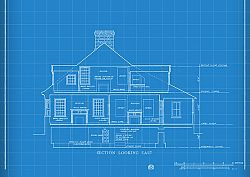

The House of Lords Built Environment Committee, which was appointed to consider matters relating to the built environment, has published a new report - The impact of environmental regulations on development - in which it calls for stronger political leadership to deliver a strategy to drive development and protect the environment.
The Government aims to build 300,000 homes a year by the mid-2020s and also has environmental ambitions. However, the Committee has warned that "a lack of leadership and poor implementation is limiting opportunities to do this". In order to meet it's targets, the Government has to display strong political leadership according to the report.
The key findings of the report are as follows:
During the Committee's inquiry, it heard that 45,000 new homes a year may be prevented because of recent advice on the nutrient, water and recreational applications of Directive 1992/43/EEC, on the conservation of natural habitats and of wild fauna and flora, and Directive 2009/147/EC on the conservation of wild birds. Although neither are applicable after Brexit, the UK has created legislation that is still in force that implements the requirements of those Directives.
On that point, the report states "The current approach is also not effectively protecting or improving the environment. Local habitats and species are not fully understood or considered in the round, isolated pockets of mitigation are not addressing system-wide pollution or the ingrained impact of historic decisions and 61 per cent of our Sites of Special Scientific Interest are assessed as being in an unfavourable condition. These problems are the result of decades of poor practice and lack of investment. There is also a lack of coherence with the government’s food security goals, given that builders are now buying up viable agricultural land in order to close down farms as part of mitigation schemes for new housing elsewhere.”
The Committee's report goes on to make several recommendations, including:
Lord Moylan, Chair of the Committee, said, "The current approach to managing any conflict between new homes and the needs of the environment is failing to deliver for either side. Our inquiry found that the achievement of the Government’s housing and environmental policies has been hampered and sometimes completely blocked by lack of co-ordination in policy-making and haphazard and unbalanced implementation.
“There is no way the Government can deliver on its housebuilding targets unless it is brave and displays the political leadership necessary to deliver and implement a comprehensive strategy for both development and the environment. A good starting point would be to give housebuilding statutory weight which would ensure it has equal status with environmental goals. After that, coherent, cross-government plans should be developed to address major pollutants and to ensure that money is expended where it will have the most impact. This cannot happen overnight. We must be prepared with a long term plan.
For more information, see: